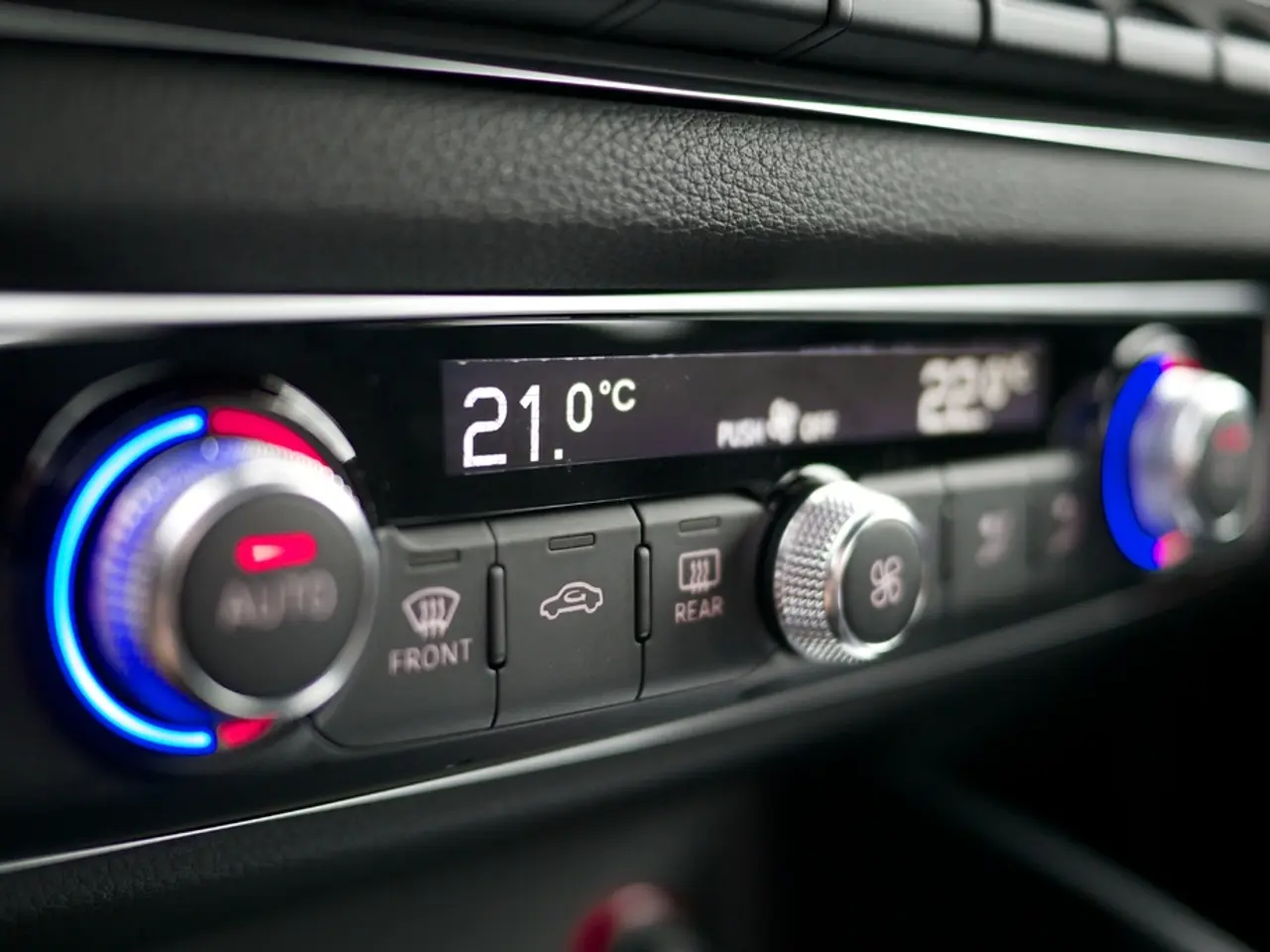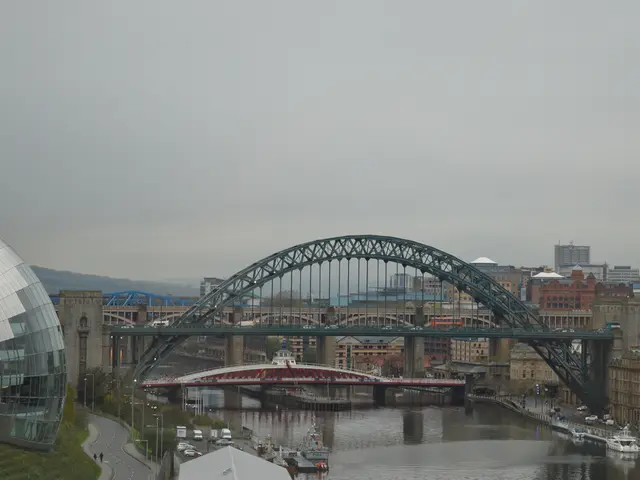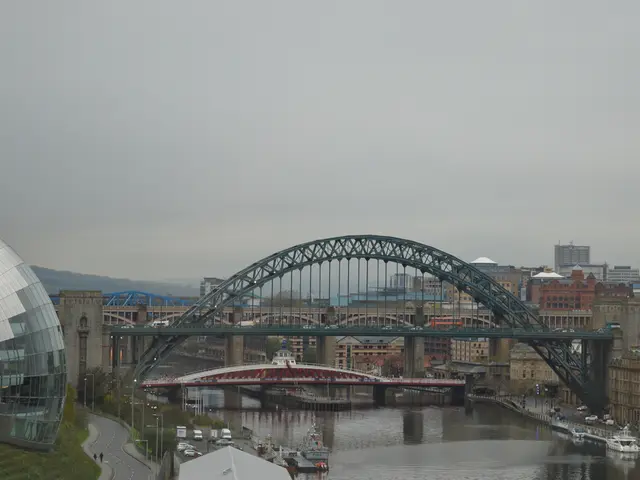Weekly activities in the German federal parliament
In a series of draft bills, the German government is taking significant steps to address climate change, improve whistleblower protection, and harmonize various regulations across different sectors.
Climate Neutrality and Emissions Trading
The amendment to the Fuel Emissions Trading Act aims to integrate stricter regulation of emissions from the combustion of fossil fuels and waste incineration into the existing emissions trading framework. This amendment supports Germany's broader commitment to climate neutrality and emission reductions.
Starting from 2033, the free allocation of CO₂ certificates for energy-intensive sectors, which includes combustion-related emissions, will gradually end, fully abolishing free allocations by 2036. Companies will be required to offset their emissions through cleaner processes, Carbon Capture and Storage (CCS)/Carbon Capture and Utilization (CCU) technologies, or the purchase of emission certificates. CCS is legislatively supported to capture, transport, and store CO₂ emitted predominantly by fossil fuel combustion and potentially waste incineration facilities.
Whistleblower Protection
The federal government's draft bill for the Whistleblower Protection Act will be discussed in the first reading in the Bundestag this week. The bill aims to improve the currently inadequate and inconsistent protection for whistleblowers, based on the implementation of the EU directive on the protection of persons reporting breaches of Union law.
Regulatory Harmonization
The federal government is proposing a draft bill to amend the Trade Regulation Act, the Crafts and Trades Regulation Act, and the Agricultural Organizations and Supply Chain Act. This bill will be discussed in the second and third readings this week. The amendments aim to optimize various procedural aspects and individual regulations in the field of civil status and adapt them to changed circumstances, especially to facilitate the required implementation of the Online Access Act (OZG) by the end of 2022.
Moreover, the federal government is discussing a draft bill to significantly harmonize the various sanctions regimes across the EU in response to Russia's violation of international law in its attack on Ukraine.
Other Key Provisions
The draft bill includes a change to § 34 of the Infection Protection Act (IfSG) agreed with the federal states: the removal of COVID-19 from the list of diseases subject to special infection protection rules, particularly in communal facilities.
The federal government is discussing a draft bill to amend the Federal Immission Control Act to facilitate the shift away from gas as fuel. A new paragraph 11 of the Trade Regulation Act will regulate the cooperation between competent authorities in cross-border activities of insurance intermediaries and insurance advisors, as per the Insurance Distribution Directive.
The draft provides for accelerated approval procedures for plants requiring a fuel change, with permit for the construction of a plant granted before public participation. A comprehensive administrative fine regime for any form of unauthorized commercial legal services is proposed in the draft bill.
The use of electronic notification and registration procedures and the waiver of documentary evidence will reduce the burden on citizens and businesses when they need to certify information such as births or deaths at the registry office. The draft bill will enable citizens to enter their civil status data into a user account on an administrative portal and transmit it electronically to the responsible registry office.
The currently time-limited permit for the facilitated conduct of meetings of the committees and bodies of craft organizations in the Crafts and Trades Regulation Act will be made permanent. The bill will ensure that special regulations for short-time work allowance can be quickly implemented even after September 30, 2022.
Germany is introducing a bill to amend the Fuel Emissions Trading Act to cover the combustion of waste and coal in the national emissions trading system. The bill aims to support and motivate young people to take responsibility for a successful path to an independent and self-determined life. A new Whistleblower Protection Act aims to improve the currently inadequate and inconsistent protection for whistleblowers.
The federal government will discuss a bill to abolish cost recovery in youth welfare this week. The federal government is discussing a draft bill to amend the Trade Regulation Act, the Crafts and Trades Regulation Act, and the Agricultural Organizations and Supply Chain Act, which will be discussed in the second and third readings this week. The federal government's draft bill for the Whistleblower Protection Act will be discussed in the first reading in the Bundestag this week. The federal government is discussing a coalition factions' bill to adjust the ordinances on short-time work allowance in second and third readings.
[1] Source [5] Source
Read also:
- Deepwater Horizon Oil Spill: BP Faces Record-Breaking Settlement - Dubbed 'Largest Environmental Fine Ever Imposed'
- Equinor's funding cut off by Sarasin & Partners due to climate change apprehensions
- Destroying Bingin Beach in Bali overlooks the substantial danger posed by excessive development
- Domestic carbon credits garner increased focus among UK companies amidst their pursuit of a carbon-neutral future








